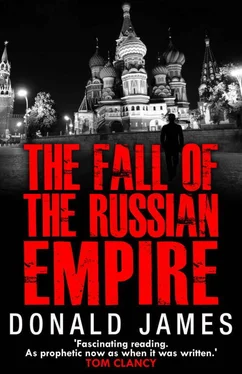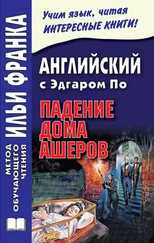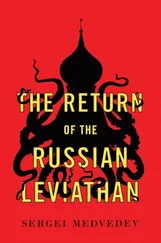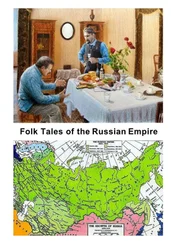“Off you go home,” Dora said genially, “and drink a liter for me. It’s been a good night’s work.”
Cheering, laughing, arms round each other, the men left the Blue Bridge and marched toward the women surging forward from the Nevsky Prospekt.
For me, for all the cold and keening wind it was a night of sweetest triumph. My father would be home soon. And I would see Anton Ovsenko again.
Two days later we held a celebration in our own tiny apartment. My father had returned, his face yellow with bruises but not seriously hurt. Perhaps forty or fifty people crowded our two rooms and spilled out onto the landing. Somebody played an accordion and Anton Ovsenko asked me to dance. Wives of the imprisoned men cried with happiness as the vodka flowed. Neighbors joined us from downstairs apartments bringing offerings of sausage and vodka. Toasts were drunk to my father and to the Blue Bridge. To a rhythmic stomping on the floor, the guests chanted, “Joseph Densky… Joseph Densky…”
My father stood on a chair, his head almost touching the ceiling. Anton stood beside me, his arm round my waist.
I looked at my father’s face and suddenly the happiness seemed to drain from me. This, he said soberly, was the beginning, not the end. Leningrad had a responsibility to the rest of Russia. Leningrad, he said, wiping beads of vodka from his gray mustache, must pay its dues.
But the looming problems of the Soviet Union in the mid-eighties were by no means confined to the Russian heartland. Of all the subject nationalities within the Russian Empire the Ukrainians were the most populous, their land the richest and most strategically vulnerable, and their recent history the most rebellious. It is true that under the constitution of the U.S.S.R. they enjoyed an apparent, virtually complete autonomy, and that the Ukraine even sat as a separate seat in the United Nations. But even while arguing for that U.N. seat, Stalin had been bloodily suppressing a full-scale uprising in the Ukraine itself. And even though the Ukrainian National Army had been defeated, so resilient was Ukrainian national feeling that there remained no nightmare for Soviet leaders comparable to the idea of an uprising in the Ukraine.
But the nationalist movement did not exist solely in small military cells in Kiev or Kharkov or Poltava. There were organizations abroad in the United States, Australia, Britain and France where several million Ukrainians nurtured a persistent hatred for the Soviet Union and fostered national movements in the Ukrainian homeland itself. It was to this problem that General Semyon Kuba now secretly applied himself.
In that same spring of the Blue Bridge demonstrations, on an April morning twelve hundred miles to the southeast in the city of Paris, an American woman wandered alone across the Pont Neuf, among the wheeling flocks of pigeons, the blue-shirted policemen and the drifting groups of tourists on the Île de la Cité. The next day Carole Yates would deny that she had been openly looking for sexual adventure. She had simply met the man in a small restaurant-bar on the Île St. Louis where, after seeing the old prisons of Paris in the Conciergerie, she had gone for lunch.
She knew immediately that he was Russian. She herself had had a Russian mother. His accent as he struggled to speak to the French barman was an obvious giveaway. When she offered, in Russian, her help, he had in turn smilingly recognized her American accent. His English was, he said, thank God, better than his French. From then on they had spoken English together.
He had told her that he was an agronomist, in France for a month to study viticulture. She had no reason to be other than frank with him. Her husband, she responded in turn, worked for the State Department at the American Embassy in Dublin. On their first day’s holiday in Paris he had been called back for a meeting. If you were married to a diplomat it happened all the time.
He had asked a little about her husband’s work, where they had been posted in the past, if they were able to travel a great deal… no more than an interested Westerner would ask.
On her side there had been questions, too. He had answered, she thought, frankly, sometimes showing just the edge of an infectious sense of humor. On neutral ground, France and the French, they had laughed a great deal, especially as they drank more.
They had sat past four o’clock over coffee and two or three glasses of Marc de Bourgogne each. She had found it easy to like him. He had a flattering ability to listen without interruption and then, when she felt she was running on too long, to encourage or reassure her with yet another question. He had, too, a range of mannerisms, a frown before he laughed, a way of stroking his bottom lip which offered some instant, familiar warmth.
After lunch they had walked the corridors of the Louvre and had drunk beer on the Champs-Élysées and in the evening strolled through the Beaubourg quarter and eaten merguèz , the hot sausages of North Africa, in a workman’s café on the rue Rembutin. And drunk wine. A bottle, almost two, between them. And afterward they had gone back to her hotel room.
She had sat on the edge of the bed unbuttoning her dress while he stood by the window, a glass of whisky in his hand.
“How did we get here?” she said as the dress opened across her legs.
“We swam,” he said, rattling the ice cubes in his glass.
She ran her hand through her blond curls. Her head was spinning. “I’m a married woman. I guess I told you that.”
“Yes,” he said gravely.
“We’ll never meet again, will we?”
“No.”
“I suppose that makes it all right, then.” She frowned at the inadequacy of her own logic.
He put his whisky aside and began to take off his shirt. She watched him undress until he stood naked before her.
“No phone calls tomorrow, nothing,” she said. “Agreed?”
“Nothing. I promise you.”
She stretched out a hand to him.
* * *
The insistent buzz of the bedside phone had awoken her at nine o’clock the next morning. When the receptionist said the police wished to speak to her she had thought immediately that something had happened in Dublin to her husband, Tom.
That was the first awful moment of that awful day. She had climbed out of bed and found her robe. The mirror showed all too clearly the ravages of sex and drink. She brushed her hair quickly and wondered if she had time to order coffee.
On the phone the police inspector had assured her no accident had befallen Tom. She sat on the bed too tired to speculate. Her hand ran across the sheets automatically smoothing the creases. Her eyes rested on two stains in the center of the undersheet. The bed was too far gone, she decided, ever again to look respectable. She pulled up the top sheet halfway and went into the bathroom to get herself a glass of water. As she turned the tap there was a knock on the outer door.
The Inspector from the Brigade Criminelle was polite but distant. “When I was a young man patrolling the rich suburb of Le Vesinet,” he said in answer to her question, “it’s what my chief used to call a delicate matter.”
“It’s to do with my husband?”
“That’s not for me to say, Mrs. Yates,” the Inspector shrugged. “Not when I’ve come to talk to you about the man you had up here in your room last night.”
Involuntarily she glanced down at the crumpled bed sheets.
“ This man, I believe.” He handed her a photograph. Taken at an airport it showed a tall, fair-haired man carrying a canvas airline bag across the concourse. Even from the twenty-or thirty-yard distance it was taken from, there was no doubt that it was he.
Later in his office at the prefecture the inspector had been more sympathetic.
Читать дальше












